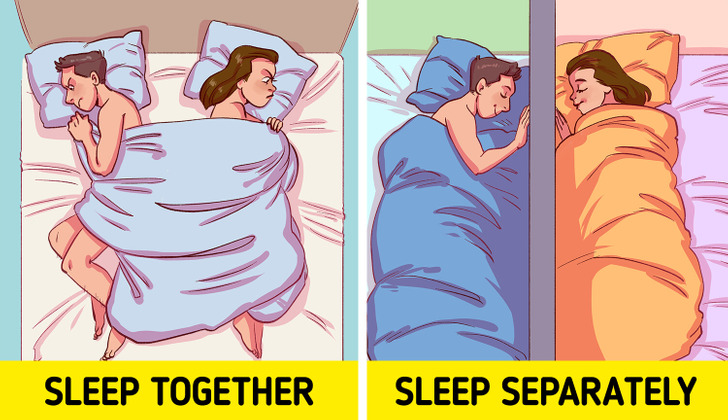Most people recognize the obvious warning signs that a marriage is in distress—frequent fights, broken trust, or cheating. However, there are also quieter, less obvious indicators that often go unnoticed. According to studies and insights from relationship specialists, these subtle cues may be early signs that a relationship is heading toward trouble, well before any major issues come to light.
1. “Hollywood romance” at the beginning of the relationship

A fast-paced, intense romance might feel like the ideal foundation for a lifelong partnership, but studies indicate that it can lead to challenges down the road. Pairs who kick off their relationships with fiery passion and storybook-like intensity often find it difficult to sustain that emotional high as time goes on.
As the initial rush naturally diminishes, these couples may misinterpret the shift as a fading connection, rather than a normal stage of growth. Interestingly, relationships that begin more gradually and with less theatrical flair often prove more resilient and are more likely to stand the test of time.
2. Avoiding conflict

While it may appear that steering clear of conflict means a relationship is thriving, the opposite can be true—silence can quietly undermine a marriage. Ignoring issues rather than addressing them head-on doesn’t solve anything; instead, it creates space for bitterness to grow.
Consistently suppressing your emotions just to avoid rocking the boat can lead to neglecting your own needs, slowly chipping away at the emotional core that holds the relationship together.
3. If you marry too young.

Age can significantly influence the success of a marriage. A study from the University of Utah points to the sweet spot for getting married as being between the ages of 28 and 32, when individuals are more likely to approach commitment with greater emotional maturity and life experience.
Marrying at a younger age can sometimes mean stepping into a lifelong partnership before fully understanding its demands—like handling money, resolving disagreements, or even knowing oneself. While early marriages can thrive, entering into one without a solid foundation of self-awareness can raise the risk of divorce later on.
4. Not implementing “sleep divorce.”

Sleeping in the same bed is often seen as a given in marriage, but for some couples, it can create more stress than closeness. Conflicting sleep habits, loud snoring, or constant tossing and turning can rob both partners of quality rest, leading to frustration and emotional strain.
To combat these issues, some relationship specialists suggest trying a “sleep divorce”—sleeping in separate beds or rooms—as a smart and healthy strategy. Despite the dramatic term, this approach isn’t about distancing emotionally; it’s about prioritizing rest so couples can be their best selves for each other during waking hours.
5. Contempt for your partner

Contempt is one of the most corrosive forces in a marriage. When one partner repeatedly communicates with condescension—using sarcasm, belittling remarks, or dismissive gestures—it steadily erodes the mutual respect that healthy relationships rely on.
Small acts like eye-rolling, scoffing, or cutting comments might seem insignificant in the moment, but they often point to deeper frustrations. Experts warn that contempt is a leading indicator of divorce, as it undermines constructive dialogue and creates a toxic dynamic that’s hard to repair.
6. You no longer look forward to being together.

Marriage is built on more than just love—it thrives on friendship, connection, and truly enjoying time together. It’s perfectly healthy for partners to have individual interests and personal space, but it becomes concerning when one or both begin to avoid shared time altogether.
Losing enthusiasm for date nights, meaningful talks, or even quiet companionship often points to a deeper emotional gap. When the desire to engage fades, the relationship can start to feel less like a meaningful bond and more like an obligation.
Also, job interviews can be stressful enough on their own—but imagine being evaluated in ways you’re not even aware of. That’s the idea behind the “Chair” Method, a discreet strategy some recruiters use to gain insight into a candidate’s character without tipping them off.